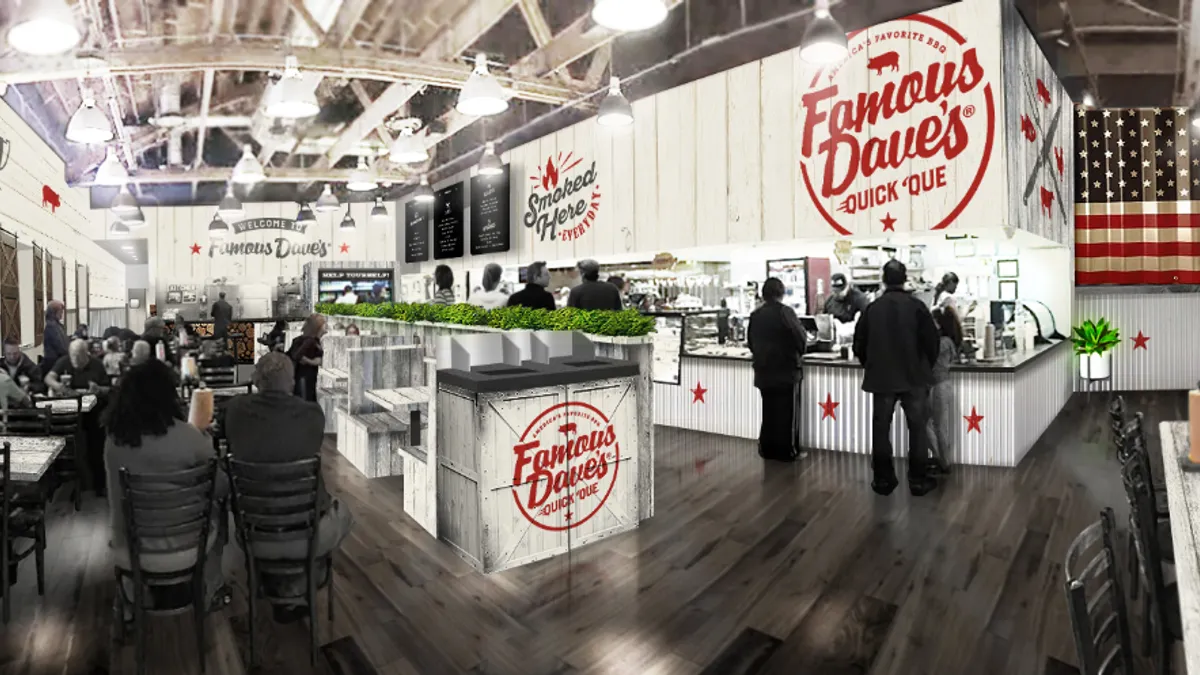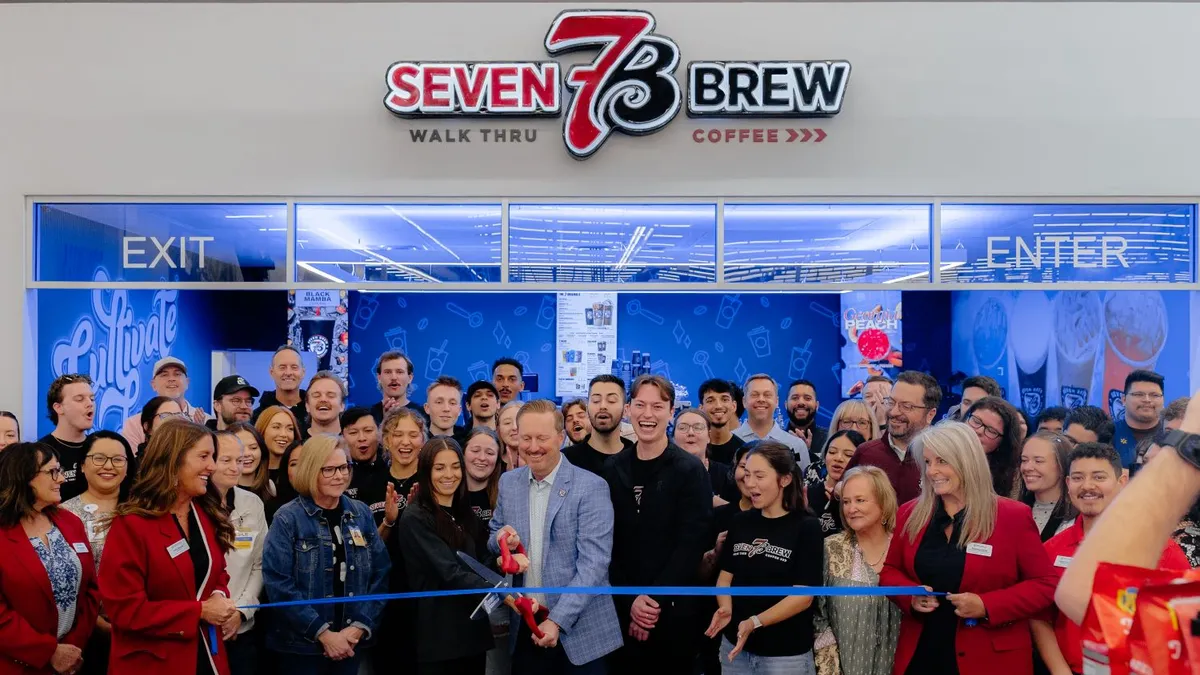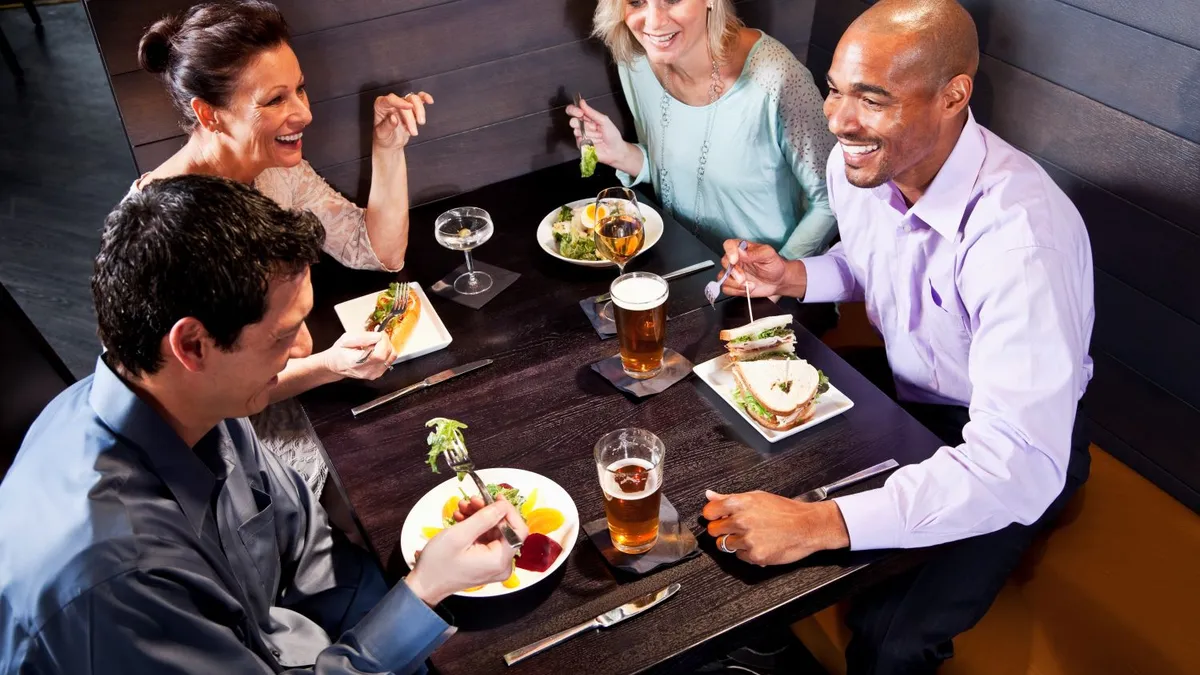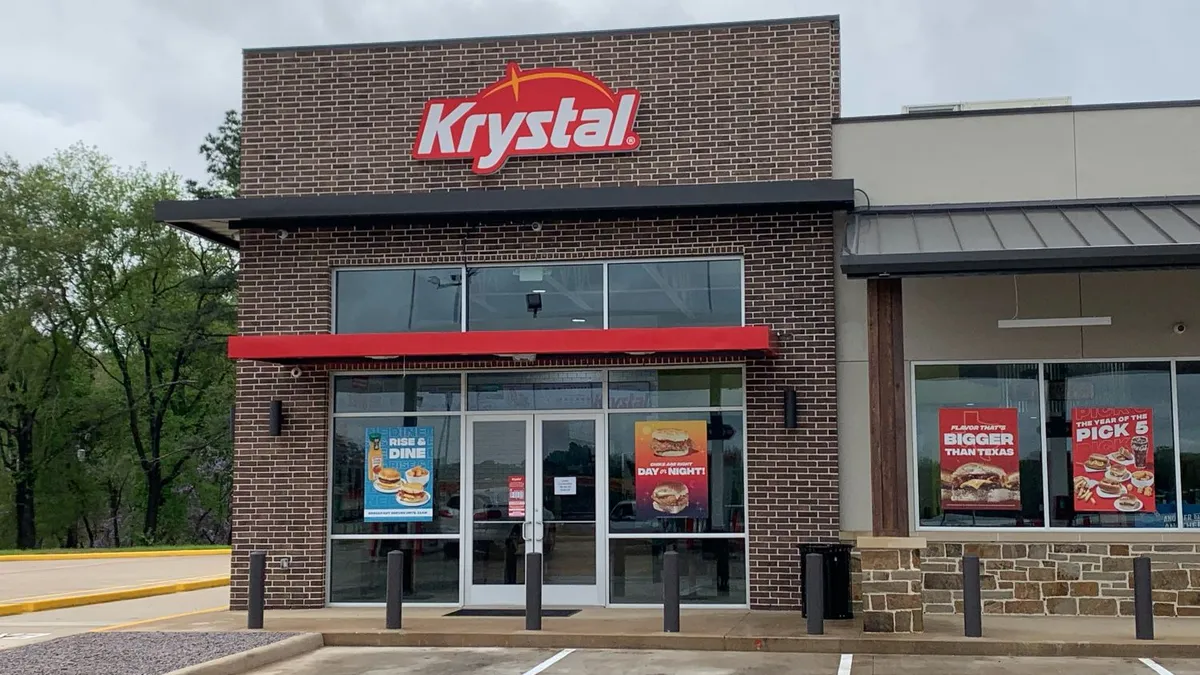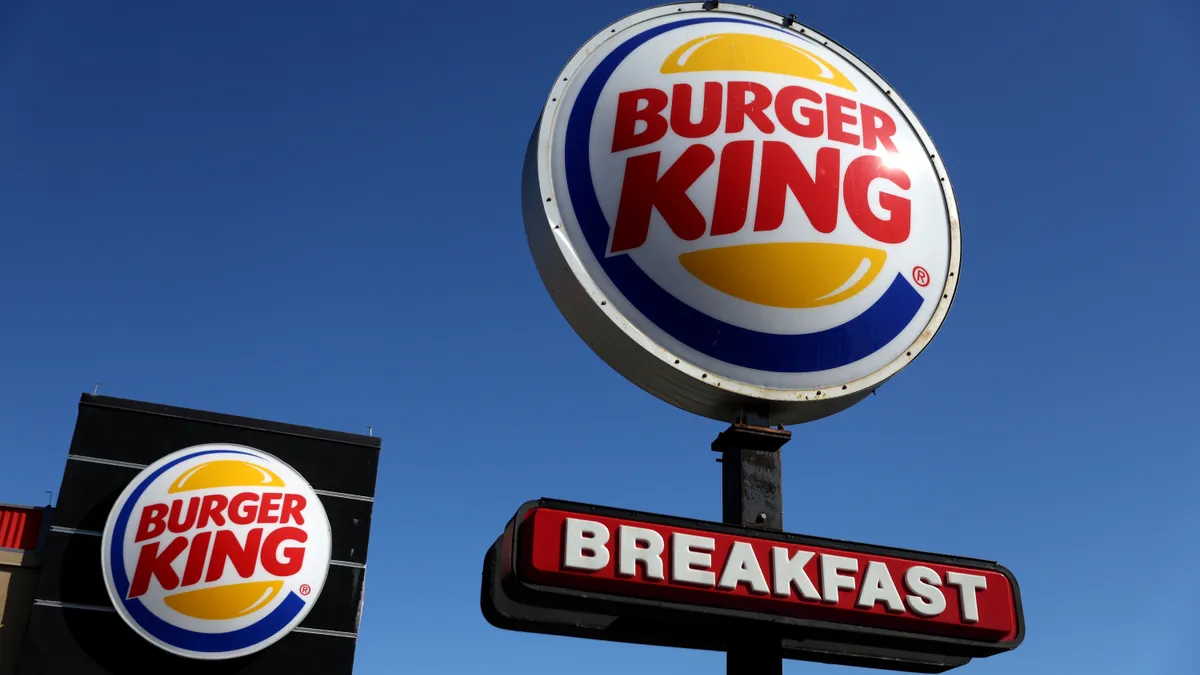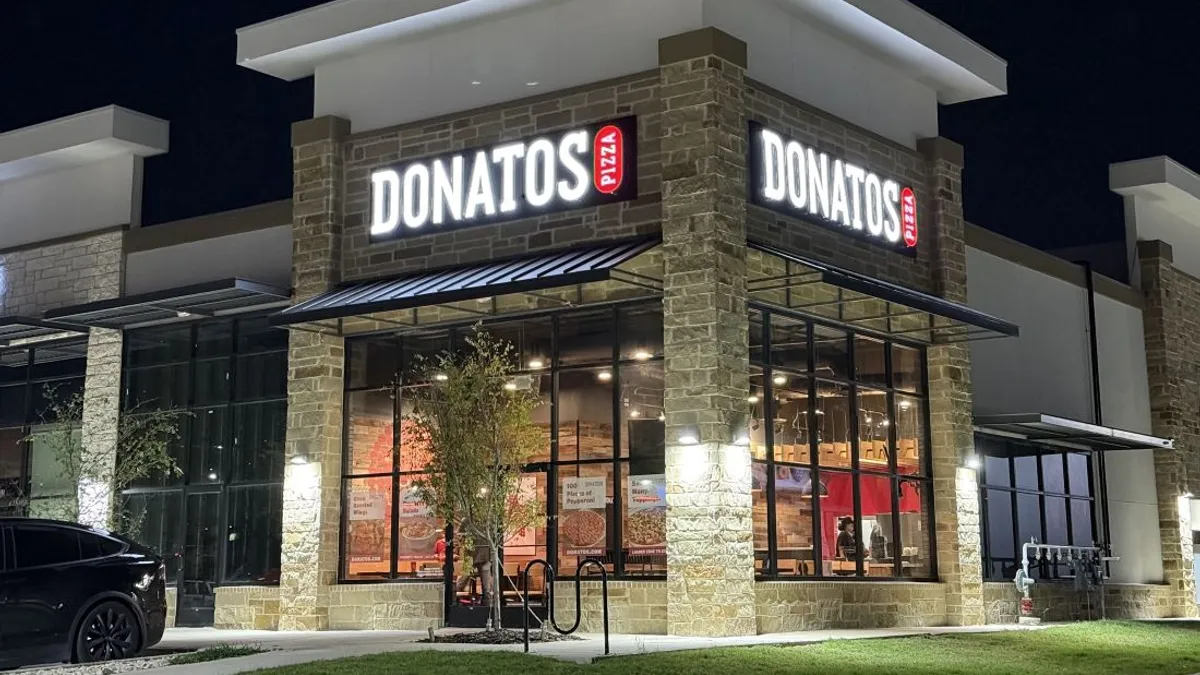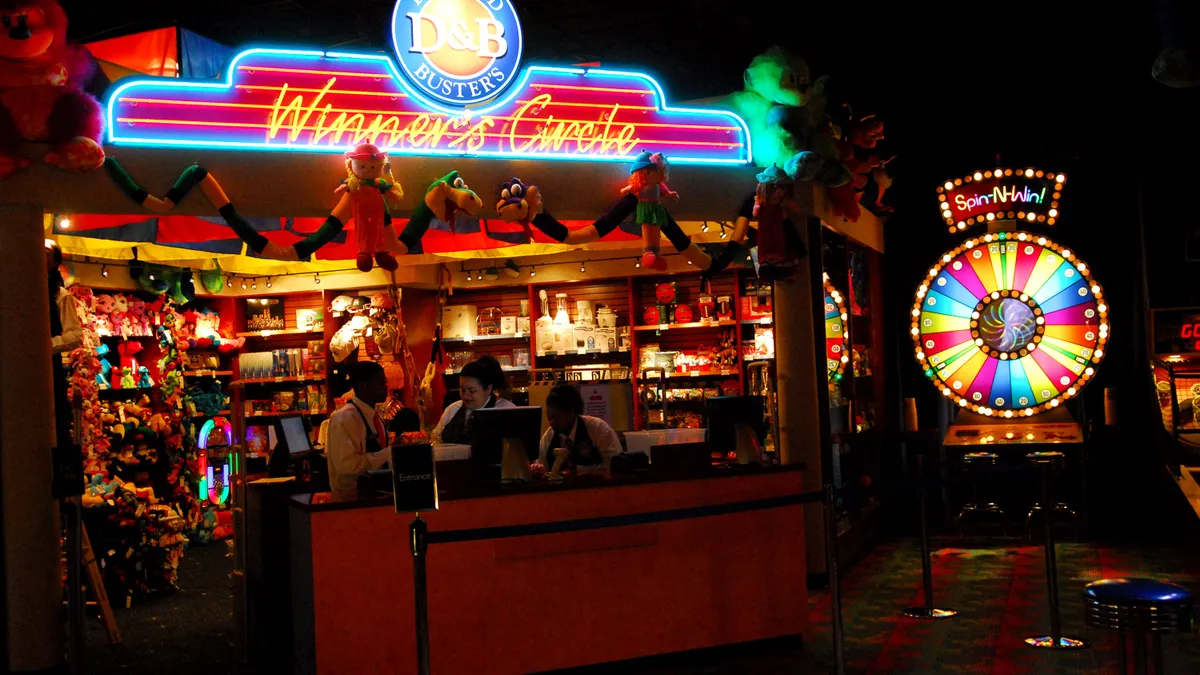When Famous Dave's franchisee John Glockner toured Real Urban BBQ in Chicago, which Famous Dave’s parent BBQ Holdings acquired in 2020, he was very impressed by its line-service model.
"We just see the future as being kind of a smaller type of unit," Glockner, co-owner of franchise group DTSG, said.
DTSG, which operates three Famous Dave’s locations in North Dakota, South Dakota and Iowa, will open Famous Dave’s first 2,700-square-foot Quick ‘Que restaurant in September.
"We can have the same barbecue fare," Glockner said. "We can do it faster. We can be more efficient and we can provide a quicker experience for guests. We don’t have to compromise and we won’t compromise the quality of food."
The new service model requires less labor than a standard Famous Dave's unit, which will help keep operating costs down, he said. Famous Dave's CEO Jeff Crivello expects the Quick 'Que concept to require 3% to 4% less labor.
"If it proves successful, I would definitely explore the option of opening more of these," Glockner said.
This latest model adds to Famous Dave's growing portfolio of diverse concepts. The franchisor now has everything from ghost kitchens to a 4,000-square-foot, full-service model, a 3,000- -square-foot model and a 2,700-square-foot counter-service model, Crivello said. The company also plans to bring drive-thrus to the Quick 'Que brand as well, Crivello said.
"Our goal is to sell as much barbecue from as many locations as possible," Crivello said. "Having more than one prototype or model is very helpful in that goal."
These diverse models will help benefit Famous Dave's sales, which posted a 20.6% decline in same-store sales during the first nine months of 2020. However, casual dining chains like Famous Dave’s were exploring different prototypes pre-pandemic, when traffic and sales were already slipping.
The COVID-19 crisis appears to have accelerated plans for new formats across the full-service segment, which experienced high double-digit declines in dine-in sales. Cracker Barrel, which posted a 22% drop in comparable restaurant sales during its fiscal Q2 2021, bought fast casual chain Maple Street Biscuit Company in 2019, and continues to grow its footprint. Hooters is franchising its fast casual concept Hoots Wings, which signed its first agreement with a franchisee in February.
Developing a diverse portfolio
While Famous Dave's has several paths to growth, Crivello said one channel that has significant opportunity now is vacant restaurant space with the kitchen infrastructure the company needs. Reconfiguring this kind of real estate allows the company to launch a restaurant much more quickly than doing a ground-up development, which can take 12 to 18 months, he said. Depending on the configuration of the space, the savings could be significant, Crivello said. If both the hood and line are in the correct spots in the kitchen, they could be converted to a Quick 'Que for $300,000 to $500,000, for example, Crivello said.
Crivello expects the average Quick 'Que concept to cost about $600,000 to $1.2 million to build, about half the cost of a 6,000-square-foot full-service Famous Dave's location. After the shell of the restaurants is built, the Quick 'Que interiors will take about three to four months to complete.
"We now have a model that if you want to renovate a second-gen drive-thru that went out of business, we have the ability to do that," Crivello said.
For this year, the company plans to have three Quick 'Que models, plus one or two Famous Dave's drive-thrus, Crivello said.
The company's first Famous Dave’s drive-thru will be a conversion that will be a franchisee unit, Crivello said, and corporate is also working on a drive-thru prototype that would be a new build.
Quick-service model brings new opportunities
Quick 'Que will have a similar menu to Famous Dave's, but with fewer items and products that are very high in the product mix, Crivello said.
This model could be particularly beneficial for the lunch daypart, when diners may be looking for a meal on the go. The restaurant will allow for catering and takeout as well, Glockner said.
"I think the quick-service model is becoming more popular, much more efficient for both the restaurant and for the guests," Glockner said.
Other franchisees will have access to this model, Crivello said. The line-service concept has been proven viable as part of 10-year-old Real Urban, Crivello said.
"We know that there's a track record," Crivello said. "There's a history. There's a lot of evolution and learnings that have happened there."
Famous Dave's has so many prototypes that operators can visit before they decide which option they would like to pursue, Crivello said.
"It's exciting that there’s many different options. We're not just stuck with one full-service large concept," Glockner said. "There's a lot of ways that Dave's is really progressively looking to the future of restaurants and it is exciting to be a part of that."



